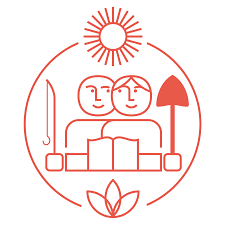As an intern, I focused on the topic of the digitalization of agriculture from a food sovereignty perspective. I first worked on Schola Campesina’s contribution to the Civil Society and Indigenous Peoples’ Mechanism’s Working Group on Data’s response to the proposed draft scope of the High-Level Panel of Experts on Food Security and Nutrition’s e-consultation on the topic of “Data collection and analysis tools” for food security and nutrition. From this process, Schola Campesina recompiled and expanded their contribution to the Working Group as a working paper to be disseminated among food producers’ organizations. For the working paper, I received a co-author credit.
Both projects allowed me to develop my research and writing skills. Multiple drafts of the different projects encouraged the appropriate use of synthesis and summary in my writing. The subject matter allowed me to deepen my knowledge of digitalization in agriculture and familiarize myself with the different organizations and perspectives involved in global governance processes surrounding this topic.
Peter Hill (MA Food Studies student)
 Schola Campesina - overview
Schola Campesina - overview
Schola Campesina is an international agroecology school, based in Italy (Biodistrict delle Via Amerina e delle Forre, Viterbo province).
Thier goal is to develop and share knowledge on agroecology and specifically on the global governance of food and agriculture (international processes that influence policies at all levels, having an important impact on small-scale food producers).
Schola Campesina facilitates the sharing of knowledge amongst food producers’ organizations and other allies (academia, activists) on global governance processes in order to (1) improve their participation within the global spaces; and (2) facilitate the use of documents (policy recommendations, guidelines, etc.) at local level in view of advancing the food sovereignty agenda in the world.
The 2015 Nyéléni International Forum for Agroecology is the conceptual base of Schola Campesina. We work at implementing its principles and action plan. The Nyéléni Declaration principles represent the starting point of all activities (trainings, participatory action research,…).
Schola Campesina works directly with small-scale food producers’ organisations identifying themselves with the food sovereignty movement and with the 2015 Nyéléni Declaration.
“The diverse knowledge and ways of knowing of our peoples are fundamental to Agroecology. We develop our ways of knowing through dialogue among them (diálogo de saberes).
Our learning processes are horizontal and peer-to-peer, based on popular education. They take place in our own training centers and territories (farmers teach
farmers, fishers teach fishers, etc.), and are also intergenerational, with exchange of knowledge between youth and elders.
Agroecology is developed through our own innovation, research, and crop and livestock selection and breeding"
How does Schola Campesina operate?
- They train organisations of food producers (peasant farmers, fisher folk, indigenous peoples, farmers, landless …)
- Their starting point is the local level, so that our position is deeply grounded and thereby enhanced, in order to influence change on the global level.
- Their work is constantly in a bi-directional sense: they follow global processes in order to influence them and, at the same time, they apply global outputs at the local level, otherwise.
- Schola Campesina’s references are the “Agroecology schools” of La Via Campesina: horizontal pedagogy “Campesino a campesino” and “Dialogo de Saberes”.
- Schola Campesina pay specific attention to languages as instruments of popular culture. It aims to go beyond the “colonial” languages.
- Being based near Rome (the headquarter of all food and agriculture related UN institutions), Schola Campesina has the particularity to be able to organize activities with peasant and activists coming from all over the world to defend their peoples’s rights.
- An agroecology school must be rooted in a territory and a community of knowledge; the bio-district represents these territorial roots.
- Beyond the training objective, Schola is also a centre for Participatory Action Research. It seeks to mobilize knowledge from peasants and their organizations, from academicians and their institutions, from activists and their organisations through a Dialogo de saberes. Schola Campesina seeks to stimulate a co-production of knowledge thanks to a constructive dialogue between Agroecology and Food sovereignty allies.
